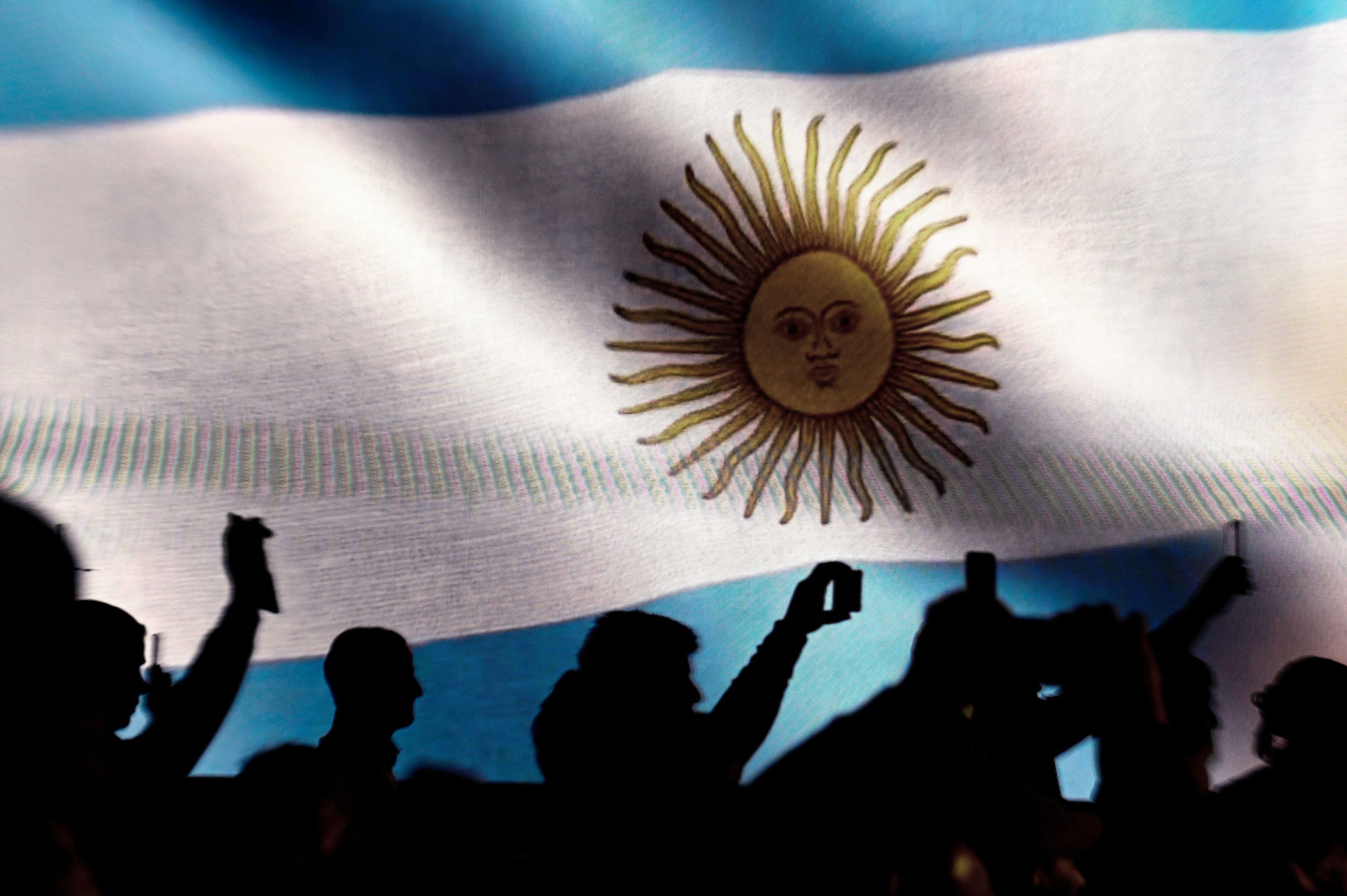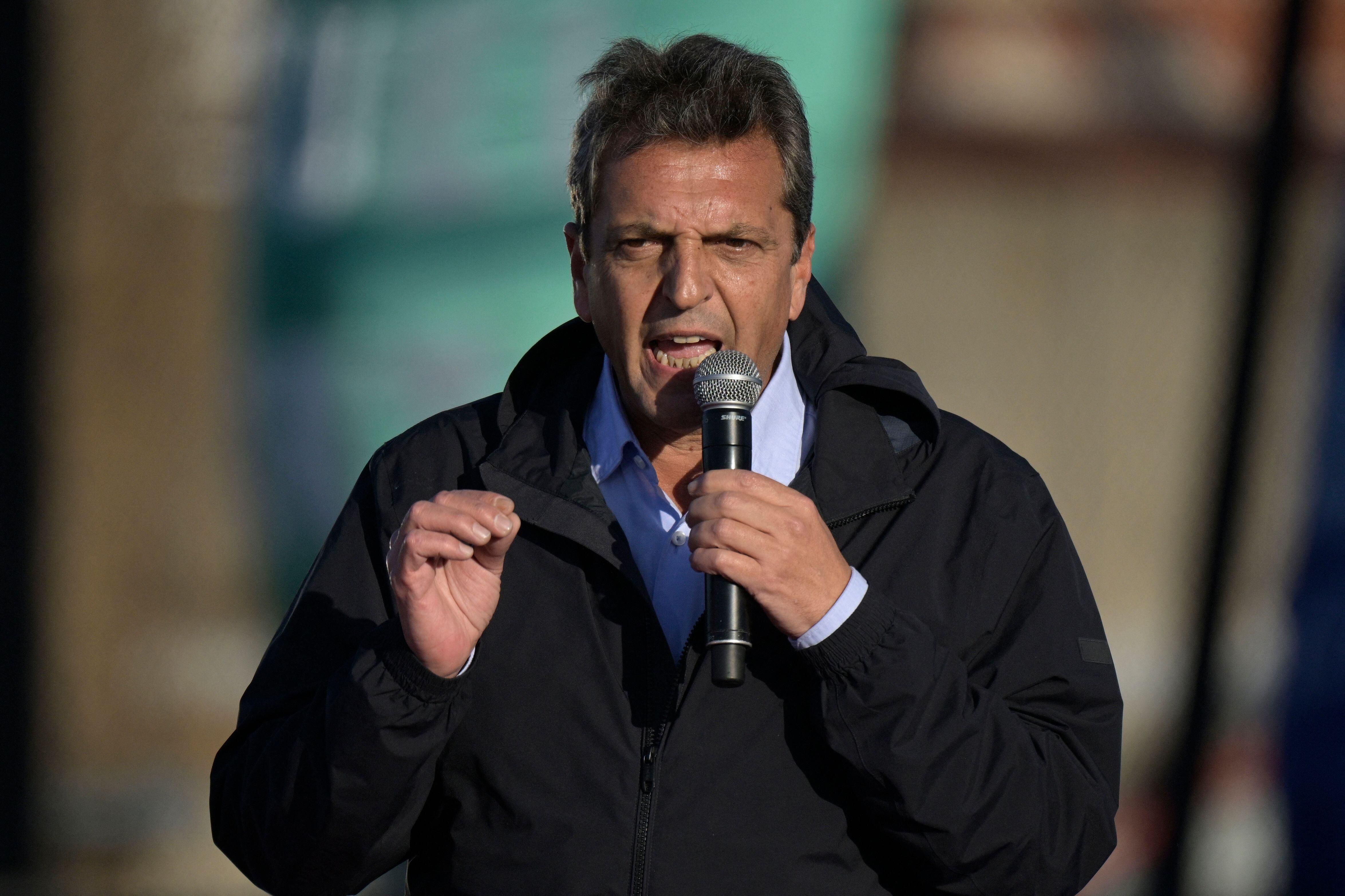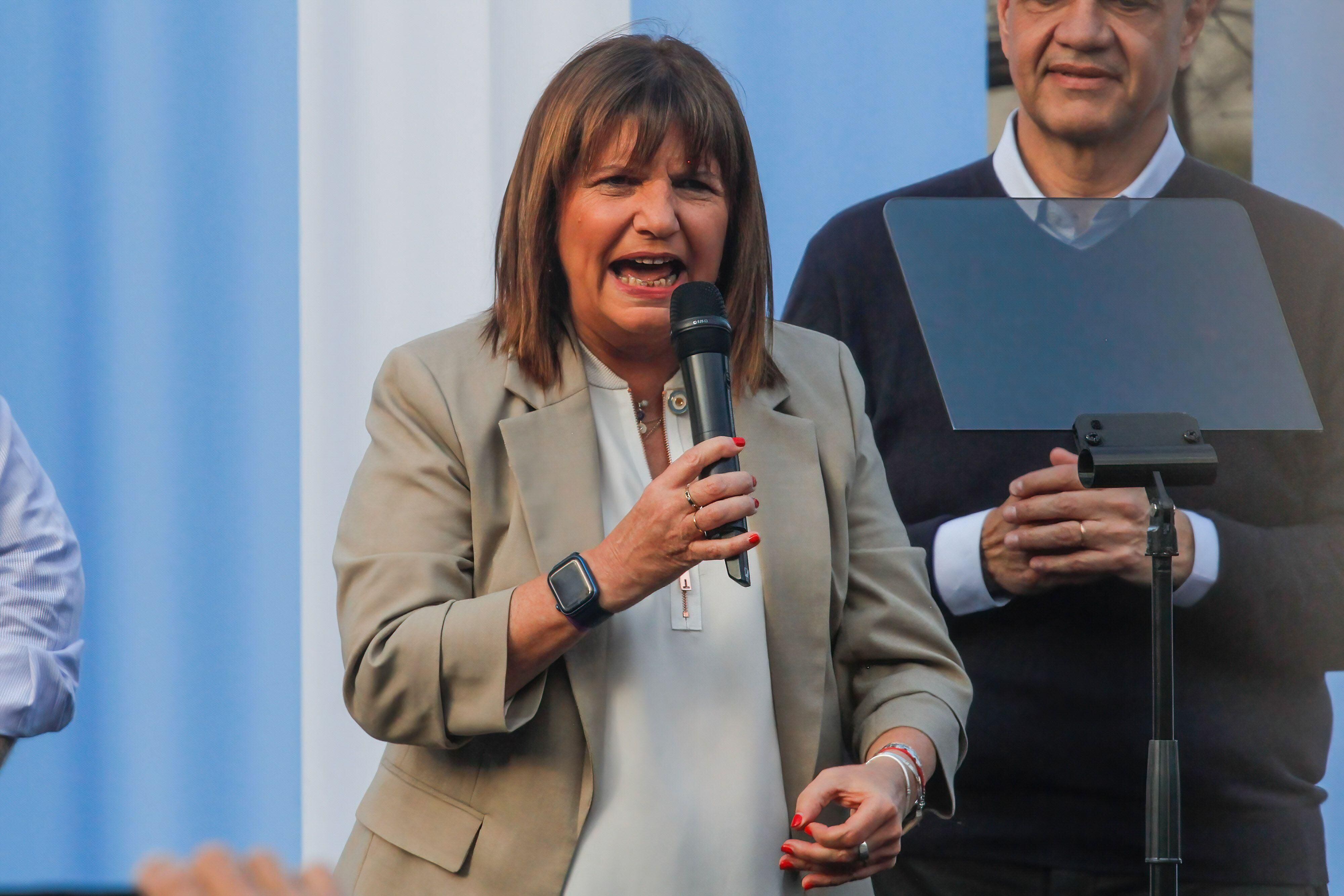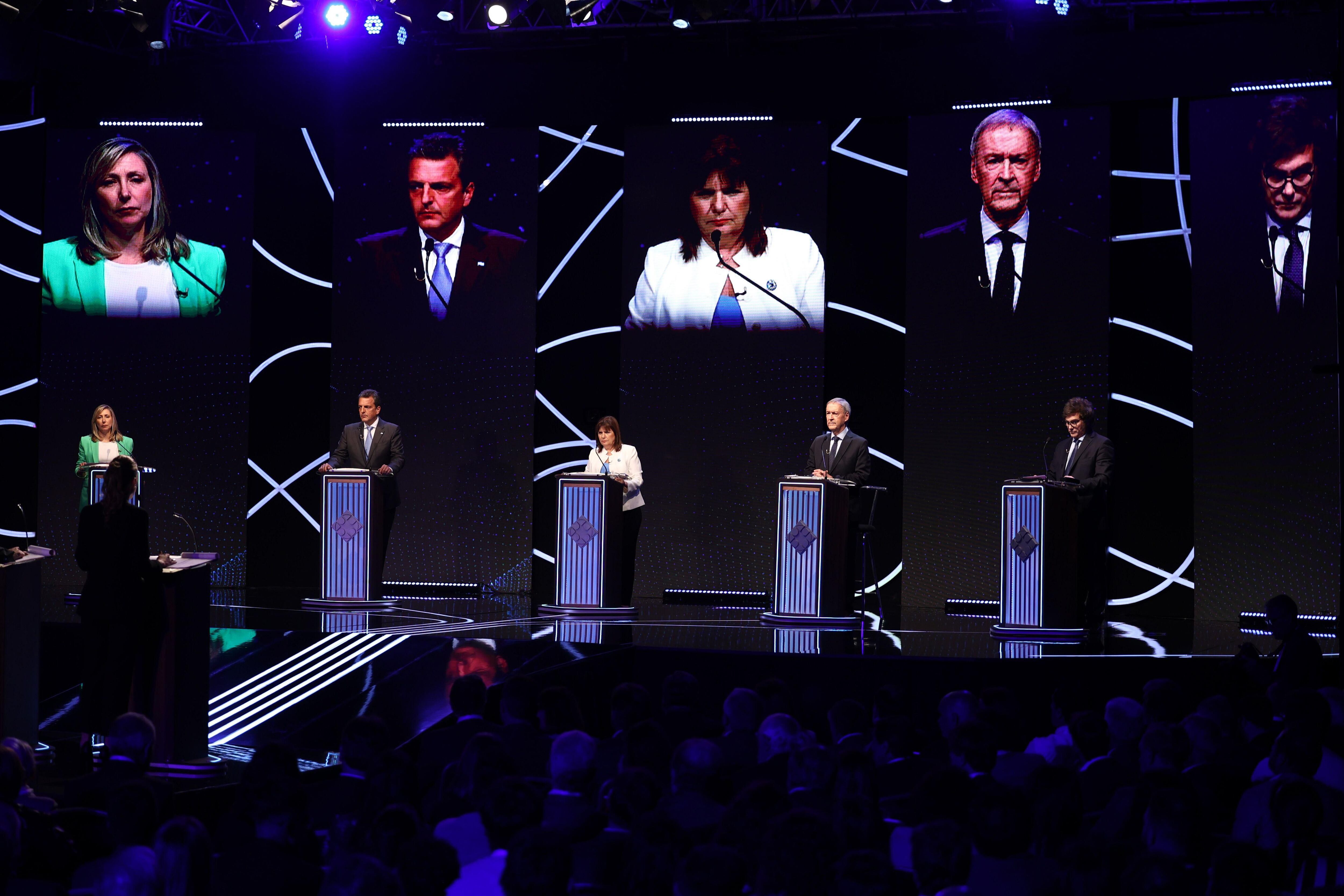In a country immersed in a serious economic crisis, the person responsible for managing the economy is the presidential candidate of the Peronist party in power.
A candidate with a background in Peronist Youth calls for an anti-Peronist vote.
LOOK: How rich Argentina really became and how and when its economic collapse began
And a libertarian with no party structure, who refers to the local currency as “excrement” and shows a chainsaw as a symbol of his plan to cut the state, appears as a favorite in the polls.
No matter how you look at it, the elections that Argentina will hold next Sunday seem to defy the country’s political logic.
“This is the most disturbing (election), the one that produces the strongest change, at least since 1946,” Argentine political analyst Rosendo Fraga told BBC Mundo.
3 instead of 2
The context in which Argentines will elect their future president, half of their deputies and a third of the Senate is in itself atypical.
The elections are different from previous ones because, according to polls, this time there are not two, but three presidential candidates with the possibility of being elected or going to a second round.
This is the anti-system Javier Milei, who surprised by being the most voted in the August primaries; the Minister of Economy, Sergio Massa, and the conservative Patrícia Bullrich.
The fact that there are three options with a chance of victory marks, in Fraga’s opinion, the crisis of the political order that existed in the country since the emergence of Peronism as a dominant force in the mid-1940s.
“Since then, Argentine politics has had two axes: Peronism and anti-Peronism”, he highlights.
“This is what has changed at this moment: we had a three-thirds (primary) election and a candidate appeared who is neither Peronist nor anti-Peronist, which is Milei”, he adds.
If no one manages to be elected on Sunday with at least 45% of the votes, or 40% and 10 points ahead of their immediate follower, there will be a second round between the two who emerge first on November 19th.
The Milei factor, anti-establishment with chainsaw
With an aggressive speech against what he calls the “political caste”, Milei is often compared to the far-right former Brazilian president Jair Bolsonaro or the American Donald Trump, whom he says he admires.
Since winning his first election as a candidate for deputy two years ago, this self-styled anarcho-capitalist economist has achieved a rise that is “difficult to imagine” for someone with his characteristics, supported by frustrated voters under 30, says Orlando D’Adamo . , Argentine specialist in public opinion and political psychology.

Milei’s vote in the primaries ahead of her group La Libertad Avanza also challenges an old scheme in Argentina according to which the poor vote more for Peronism and the rich for anti-Peronism.
“Their vote covers all social classes,” D’Adamo told BBC Mundo.
“Even”, he adds, “surprisingly from what many interpret the theory, in the Federal Capital, which is where he should have done better, he did worse”.
His promises to dollarize the economy and close the Central Bank seem to have resonated with an electorate that goes to the polls in a context of the country’s economic decline. with 40% of the population below the poverty line and annual inflation that reached 138% in Septemberaccording to official data.
Mass, official and opposition
With this panorama, the fact that someone with Massa’s position is the candidate to succeed the unpopular president Alberto Fernández by the Peronist coalition in government, the Union for the Fatherland, is seen as surprising even by some of his regional allies.
“Argentina is an indecipherable thing,” said José “Pepe” Mujica, the leftist former president of Uruguay, this week. “How do you explain that the Minister of Economy, with inflation like Argentina, is going to fight for the presidency?”
His own answer: “Because he has the support of something he doesn’t agree with, but he will vote for, which is called Peronism. Why this animal exists: It’s a mythology that the Argentine people have. So this breaks all schemes.”

Founded by General Juan Domingo Perón in the middle of the last century, Peronism had an enormous capacity for political regeneration.
It achieved this validity despite all its internal divisions or even thanks to them (Perón is credited with saying that Peronists are like cats: “it looks like we are fighting and in fact we are reproducing”).
This explains why Massa has sought a difficult balance, while showing as a representative and alternative to the government that it integrates.
Last month, he declared on the LN+ channel that, of the current cabinet members, “at least half would not be ministers” with him as president.
He also stressed that he assumed economic leadership in the middle of an emergency, instead of staying “under the bed”.
Although several polls of voting intentions place Massa in second place, it is not known how the economic deterioration and recent scandals in the province of Buenos Aires, a Peronist stronghold that accounts for almost 40% of the vote, will end up affecting him.
One of these scandals was the dismissal of the provincial chief of staff, Martín Insaurralde, from the same coalition as Massa, after photos were revealed showing him in Marbella on board a luxurious yacht called “Bandido”, alongside a model and serving champagne.
In the last debate of presidential candidates, this case was insistently mentioned by Bullrich, former Minister of Security in the government of Mauricio Macri (2015-2019).
Bullrich, from Peronism to anti-Peronism

Peronism’s ability to reproduce also meant that many Peronist politicians ended up later joining the ranks of other parties.
Despite Milei’s statements against “caste”, the candidate from the Juntos pela Change coalition accused him of filling his lists with former figures from the Peronist apparatus such as trade unionist Luis Barrionuevo, author of one of the most emblematic phrases in Argentine politics in the years 90: “We have to try not to steal at least two years in this country.”
“You also have many people on your lists who come from elsewhere,” Milei responded to Bullrich, accusing her of trying to cover up a past linked to the Montoneros guerrilla group in the 1970s.
Although he recognizes his time with the Peronist Youthwho claimed Montoneros, Bullrich denies having belonged to this armed organization and says he was self-critical about the use of violence in politics.
Despite the ideological differences between the two, he often compares his attitude with that of Mujica, who belonged to the Uruguayan Tupamaros guerrilla.
In the campaign, Bullrich said that “the objective is to end Kirchnerism”, the Peronist faction born with former presidents Néstor and Cristina Kirchner, current vice-president of the country.
However, he would need Kirchnerist votes if he went to the second round and had Milei ahead of him.

In the debates for the Argentine presidency there were more personal attacks than concrete proposals and they included the participation of the two candidates relegated in the polls: the governor of Córdoba, Juan Schiaretti, and the leftist Myriam Bregman.
But, as it marks 40 years of the recovery of democracy in Argentina, the current campaign also reflects something positive according to D’Adamo: “that we fix things by voting and we’re not going to go around killing ourselves.”
“The idea is established that democracy is the system with which we choose the path to follow”, reflects the analyst.
But, he adds, “the idea that democracy is the system through which we effectively solve our problems is not”.
Source: Elcomercio
I am Jack Morton and I work in 24 News Recorder. I mostly cover world news and I have also authored 24 news recorder. I find this work highly interesting and it allows me to keep up with current events happening around the world.

:quality(75)/cloudfront-us-east-1.images.arcpublishing.com/elcomercio/3ROKUMHSSRH43DBMCYRJW4VSNU.jpg)


:quality(75)/cloudfront-us-east-1.images.arcpublishing.com/elcomercio/6T5VR63ZIVHVHIZXGIZCSUVBCM.jpg)
:quality(75)/cloudfront-us-east-1.images.arcpublishing.com/elcomercio/VIGQE74GCNDVDJYOGCXLUELIGY.jpg)

